[vc_row][vc_column][vc_column_text]
- Ngorongoro Crater, Tanzania
- Murchison Falls National Park, Uganda
Both my parents are from Uganda, and as a kid I heard so many stories of their lives growing up in East Africa. I am always in awe when I hear his stories. It just seems like an extraordinary life that they had lived growing up in East Africa and eventually finding their way here, to Canada. We've always talked about planning a trip to go back and see the lands where they grew up, where they were educated and where they started their young adult lives. Initially it was planned as a graduation trip after university. But once I realized how crippling my student debt was, I wanted to wait until I was more financially stable before I went. Then it became this very big deal to me - I wanted to treat my dad to a retirement trip and show him that all of his years of hard work raising me had resulted creating a somewhat cool human being, that would do something so astonishing like this and to have a truly once-in-a-lifetime opportunity to share in the experiences that my parents had growing up.[vc_separator type="transparent" position="center" up="25" down="0"]
When I started at AppCentrica, they told me about this wonderful perk they had called a "mini-retirement". For every 3 years you work at the company, the bosses would reward you with an extended vacation time (5 weeks off) and a stipend to fund your dream ($5K) - whatever it is you want to do, wherever in the world it may be - in order to give you a little break to recharge your batteries, experience a little bit of the world, to do something you may not have normally been able to do and to come back with a story. I thought, "This is the perfect opportunity for me to finally put a definitive deadline on when this trip would finally happen". I know, it seems a little far off, "3 years? You had to wait another 3 years before you could do it?". Yes, I did. But the wait was well worth it. It gave me time to plan this 5-week whirlwind journey. And before I knew it, 3 years had come and past at AppCentrica so I finally gave them my dates of mini-retirement: January - February of 2017. Unfortunately, my mom is not well enough to travel (she suffers from a lot of illnesses and has a lot of allergies), so it just because a father-daughter trip. But it was one for the ages.[vc_separator type="transparent" position="center" up="25" down="0"]
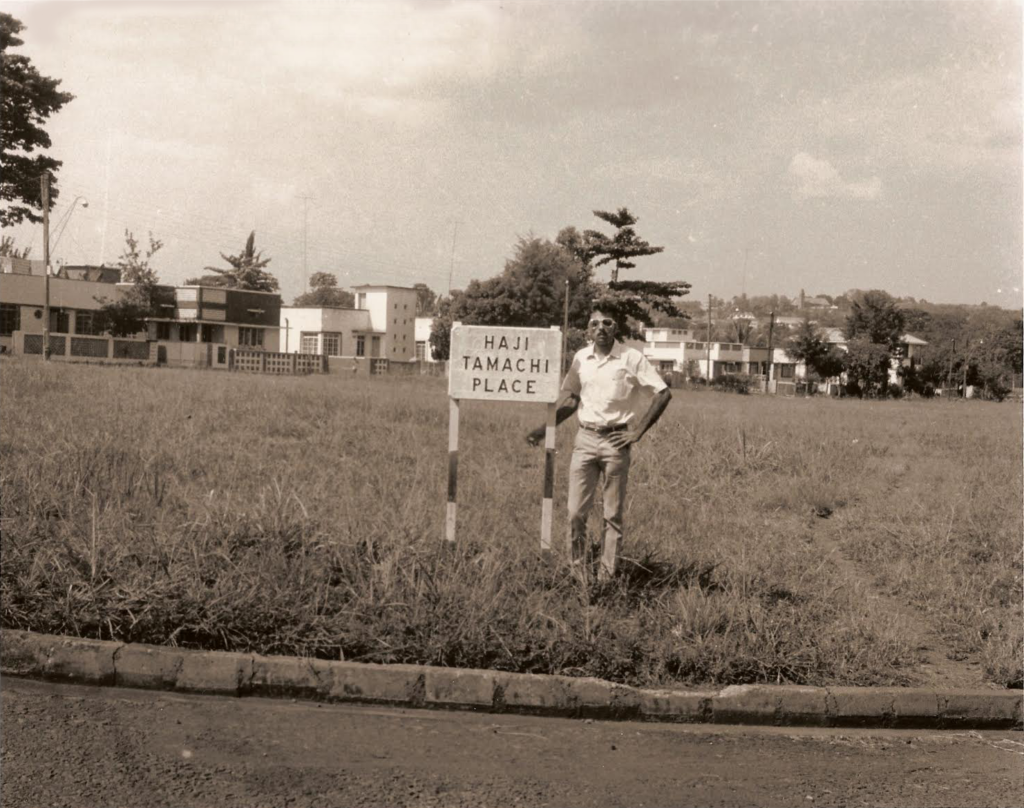
My dad at Haji Tamachi Place Gardens (late 1960's)
[vc_separator type="transparent" position="center" up="25" down="0"]The history of Indo-Canadians/Indo-Americans from East Africa is not well known to a lot of people here in the west. I don't think I'll do the history justice or even get it completely right, but I will give a high-level summary of what happened. Long ago, when the British colonized India (along with most countries in the world), mid to late 1800's, the British and other Europeans were focused on creating pathways to fertile lands. Many Indians from the Gujarat region (well, all along the western side of India, really) were instructed by the British to pick up their livelihoods and migrate over to East Africa (then known as "British East Africa") in order to start up businesses, build key infrastructure and oversee the various British interests in East Africa. East Africa is comprised of three key countries: Kenya, Tanzania and Uganda. This is why we saw a huge migration of Indians into these countries. "Asians", as they were called in East Africa, were a minority group in these countries but they had played a significant role in the business and finance economies.[vc_separator type="transparent" position="center" up="25" down="0"]
My family (both mother's side and father's side) were amongst the people selected and tasked with the jobs of building up key businesses in Uganda upon their migration to East Africa. So it is because of this reason that my family has lived in Uganda for quite a few generations. Both my parents were born in Uganda (my mother in Jinja and my father in Kampala). As a child, my mom went back and forth between India and Uganda a lot, as her father had businesses and land in both countries. Since India was still a British-run country, her family had dual citizenship between the UK and Uganda. My dad's family had lived in Uganda for several generations and had not been traveling back to India in that time, so they only held Ugandan citizenship. Why am I telling you this, you might ask? Well, it all comes into play a little later on.[vc_separator type="transparent" position="center" up="25" down="0"]

Haji Tamachi and the Khanani family men
[vc_separator type="transparent" position="center" up="25" down="0"]Fast-forward several years. The year is 1968, and Milton Obote is Uganda's second President. He has a rift with the Major General of the Ugandan Army, Idi Amin. Amin begins to build support within the army and hears that Obote plans to arrest him for misappropriating army funds. Amin seized power by overthrowing Obote in a coup d'état in 1971 by taking over the Entebbe International Airport and took control of Kampala. One week after this coup, Idi Amin declared himself President of Uganda, Commander-in-Chief of the Armed Forces, Army Chief of Staff, and Chief of Air Staff. Milton Obote's government had pursued a policy of "Africanisation" which included policies targeted at Ugandan Asians. Amin's policies represented a significant acceleration of these policies and very quickly into his takeover of Uganda, Amin had claimed that ideas had "come to him in a dream" to take back the country from the invaders of Uganda (of course, he was referring to the Asian, British and European population of Uganda). Although these people only represented about 1% of Uganda's population, they were responsible for over 1/5 of Uganda's economy. In August of 1972, Amin issued a decree ordering the expulsion of the 50,000 Asians who were British passport holders. A few days shortly after this decree the famous dictator amended his statement, to include all 80,000 Asians, British and European people who were not Ugandan citizens to be expelled. Eventually all Asians, British and European were to be expelled from Uganda, regardless of their citizenship status. Only essential personnel were forcibly kept within Uganda (i.e. their passports were taken from them so they could not leave). The Asians were given 90 days to leave the country before forcible action was to be taken. Amin called this an "economic war" against the British. Around 30,000 Ugandan Asians emigrated to the UK. Others spilled out into other African countries such as Kenya, Tanzania and South Africa. The remaining Asians went to Commonwealth countries such as Australia, Canada, and Fiji, or to India, Pakistan, Sweden, Spain, Austria and the United States. Amin expropriated businesses and properties belonging to the Asians and the Europeans and handed them over to his supporters. The businesses were mismanaged, and industries collapsed from lack of maintenance. This proved to be disastrous for the already declining economy.[vc_separator type="transparent" position="center" up="25" down="0"]So, what does this mean for my family? My mom and her family, as British citizens, were amongst some of the first Asians to flee to England. My mom was just shy of 21 at the time. They started their life over from scratch in Bolton, England. They had to leave all of their properties, livelihoods and several businesses behind, each only carrying 1 suitcase. Luckily, my mom is a passionate and unstoppable force, so she was able to quickly find work as an administrative assistant and helped to rebuild her family's life in England. My dad was an air traffic controller at the time at the Entebbe International Airport in Kampala. He was actually located in Nairobi, Kenya at the time representing Entebbe at the prestigious East African School of Aviation training for the higher-level rank of air traffic controller. His dream was to become a pilot some day. He heard about the news from his family and he had a decision to make: stay in Kenya to finish up his training under permission of the principal of the EASA who would keep him in Kenya, or to go back and join his family and end up wherever that fate favoured him. He chose to stay with his family and made the trip back to Uganda and awaited his fate. As Uganda was his sole citizenship, he had his passport destroyed and was deemed stateless. He got on a plane carrying some of the last Asians to safety. He had everything taken from him and landed in Austria, one of the last countries to take in refugees from this crisis, with next to nothing and lived in a refugee camp there with his elder brother, sister-in-law and uncle for two years. His family was split up amongst four different countries during this strife: England (my dad's youngest and eldest brothers, sister and mother), the United States (my dad's father), Canada (my dad's second eldest brother) and Austria (my dad's next eldest brother and himself). Some of the countries that initially opened their doors to the Asians started family reunification efforts. It is all thanks to Aga Khan's relationship with then Prime Minister of Canada, Pierre Elliott Trudeau, that Canada opened its doors to thousands of Ugandan refugees in attempts to reunite families that were separated during the East African strife (I recounted this story to our very own now Prime Minister, Justin Trudeau, one time before he became Prime Minister and it brought him to tears - but that is another story). Slowly, over 8 years, my dad's family was brought together under the sponsorship of my second oldest uncle and family in Canada, which is how we all got here. My dad got married to my mom and brought her to Canada and after more than 7 years of trying to find a career and place to call home they finally were able to build some roots with their own family.[vc_separator type="transparent" position="center" up="25" down="0"]
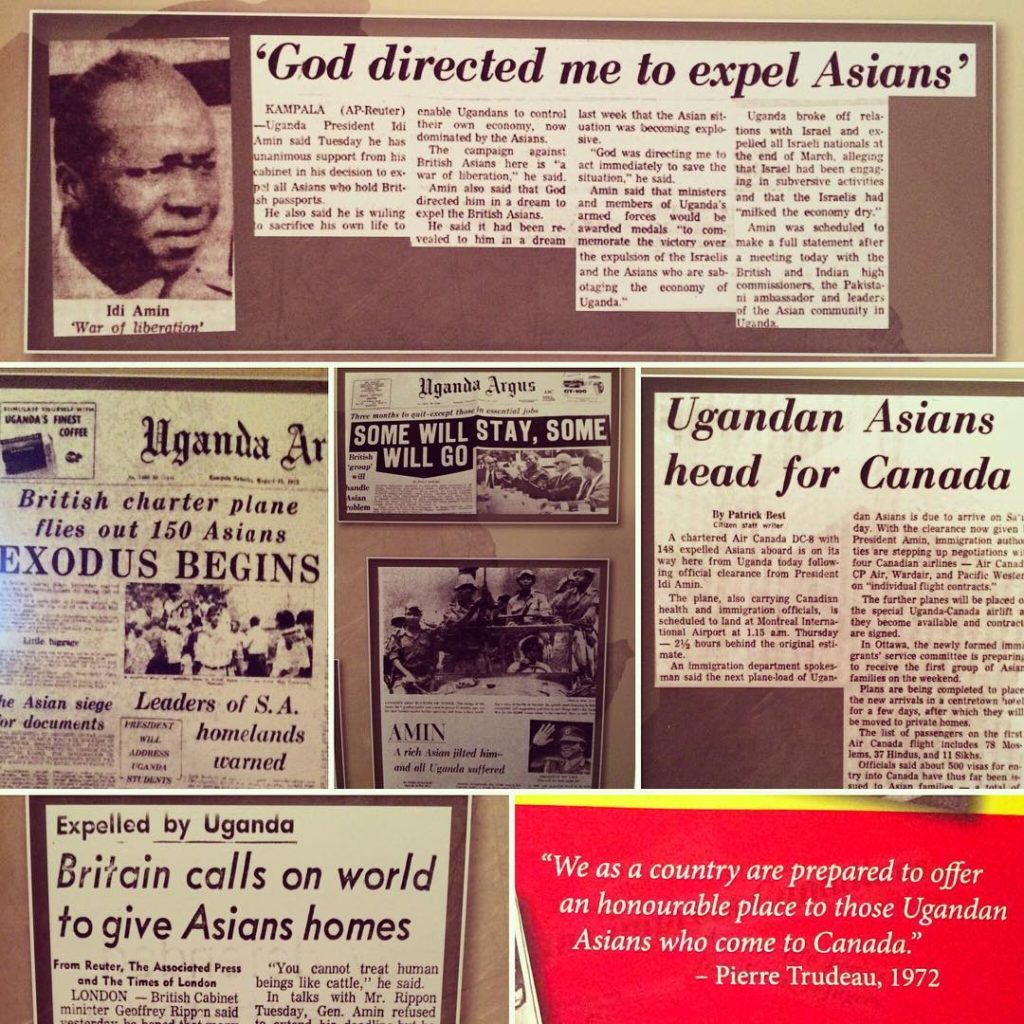
Ugandan Asians expulsion news clippings
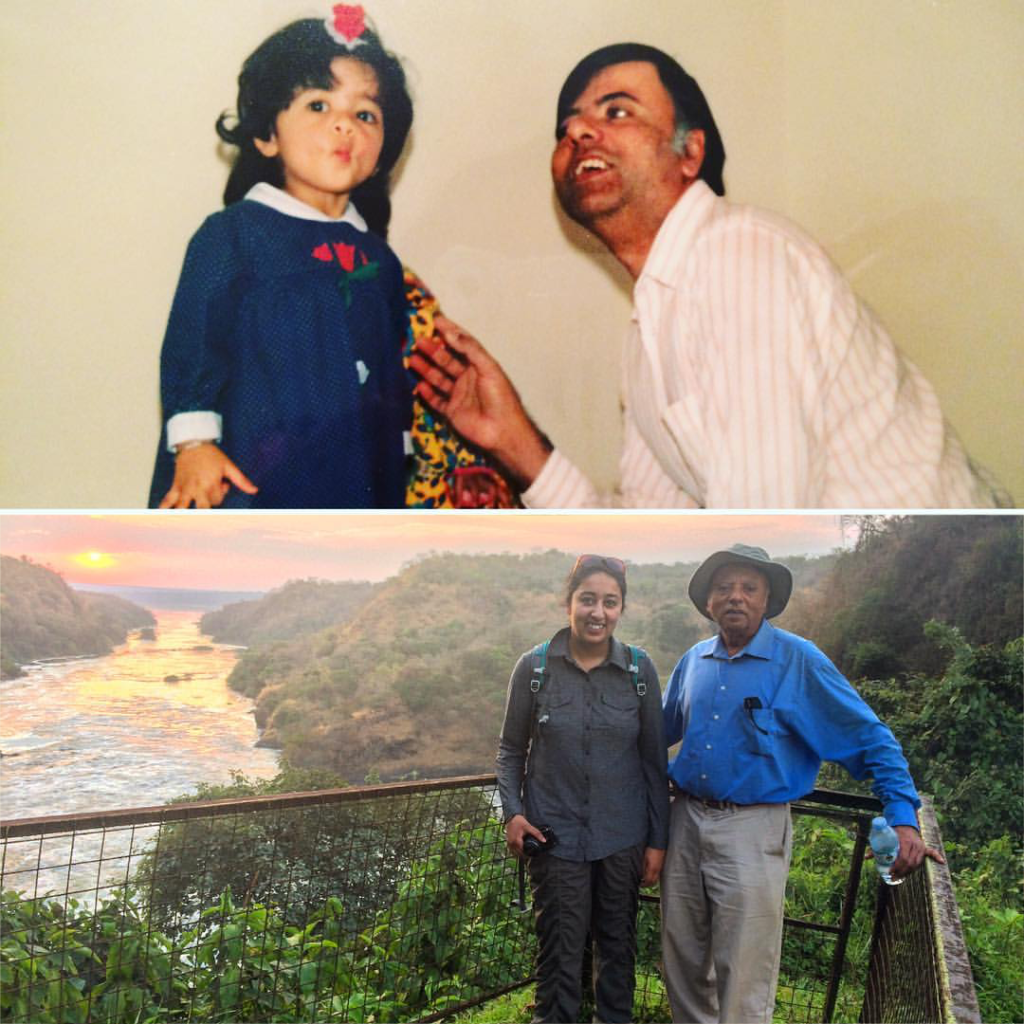
My dad and I, then and now
[vc_separator type="transparent" position="center" up="25" down="0"]I know, it's a very wild ride! I'm still wiping the tears from my eyes. Now you can probably see why I had such an interest in going back to visit my parents' birthplace. We have such a crazy family history, just over one generation. I am such a proud Canadian and I am absolutely thankful and in awe that my parents and their family could be so strong and adaptable in the face of such struggle. I have absolutely always wanted to visit East Africa because of these reasons, but it is understandably an emotional subject amongst our family. All in all, our family is thrilled to be in Canada and they have fought so hard to give us lives where we can do nothing but strive for our absolute best and go for our dreams because we have nothing to hold us back. This is why it was so important for me to be able to do this for my dad, but I had no idea how emotional the trip would be for me.[vc_separator type="transparent" position="center" up="25" down="0"]After decades of dreaming, years of plotting and months of intense planning, all the pieces finally came into place. I can't thanks AppCentrica enough for giving me this opportunity. It was a life-changing trip that I would never trade in for anything. I got to travel across East Africa with one of my favourite people in this whole entire world - my dad. It was way more than I could have imagined. I will treasure the memories that were made on this trip forever and I am so glad I got to go #BackToTheMotherland with my original best friend. Below is a summary of where we managed to visit each day during our whirlwind trip in East Africa across 5 weeks:[vc_separator type="transparent" position="center" up="25" down="0"][no_custom_font font_family="Playfair Display, sans-serif" font_size="20" line_height="23" font_style="normal" text_align="left" font_weight="" color="#222527" text_decoration="none" text_shadow="no" letter_spacing="" background_color="" padding="" margin="" show_in_border_box="no" border_color="" border_width="" text_background_color="" text_padding=""]#TheGreatTamachiReturn (East Africa) #BacktoTheMotherland Itinerary[/no_custom_font][vc_separator type="transparent" position="center" up="25" down="0"]
Day 1:
There was a flurry of last minute packing, with my dad arriving in Toronto on a Greyhound bus. We took the UPExpress together with my sister to the airport so she could see us off. I regretted the large suitcase then, but that was nothing in comparison to the regret I would have after lugging those dang things across 5 countries... We took an overnight flight from YYZ to AMS (Amsterdam).[vc_separator type="transparent" position="center" up="25" down="0"]
Day 2:
The flight arrived at Amsterdam's Schiphol airport at 7:15am. We had less than 2 hours before our next flight so my dad got to practice his Dutch and learn a few more words with the very kind ground staff at KLM while we waited at the transit gate. Apparently learning a new language is enough to get you bumped up to advance boarding with all the elderly and families with small children. Bosh! Then we flew from AMS to KGL (Kigali, Rwanda) to refuel and board more passengers before finally making our way to EBB (Kampala, Uganda). 6:42pm marked the first time my dad had been in Ugandan airspace since he left nearly 45 years ago. 10:13pm: when we touched down in Entebbe International Airport. 10:27pm was the first time my dad had stepped foot back on Ugandan soil in 45 years (imagine, all the tears streaming down my face at this moment, meanwhile my dad's like "Awesome! Get me off this plane! I need to explore!"). We got picked up by my uncle Mustaq's driver, Ismail, at the airport and drove to Kampala to meet him at his house in the Bugolobi area. A late night ensued as these two caught up on the past 40 years.[vc_separator type="transparent" position="center" up="25" down="0"]
Day 3:
We were exhausted after the full day of flying, the time change and the late night, so we slept into the afternoon of the following day. We spent most of the day recuperating, enjoying the company of Mustaq and his wife Kulsum and enjoyed some amazing meals. I am telling you now, you will never taste fruits as sweet as the ones that are from Africa. We totally get gypped here with our fruits... If there is a reason to go to Africa, it should be for the kind people and the MIND-BLOWING fruits! Anyways, in the evening we discussed our plans of what we wanted to do and see while we were in Uganda with Mustaq and he began to make arrangements for us to check all the spots off of our list. Mustaq surprised us by bringing us to a filming of the BBC special "Focus on Africa" because his daughter rented her office space to BBC for the filming. Cool experience! My dad even got interviewed by a reporter about being back in Uganda for the first time in 45 years. He was afraid his Swahili was bad, but he did very well.[vc_separator type="transparent" position="center" up="25" down="0"]
Day 4:
Mustaq owns and manages a hotel in Masindi, called the Masindi Hotel, and since we had told him we wanted to see the Murchison Falls, he thought it would be a great opportunity for us to come up and see his hotel, visit the falls and stay overnight at the hotel before going home, and that is just what we did. It was my first experience in real African traffic (when we arrived we drove at night, so we didn't get the full experience of African traffic). Boy was it busy - it took us almost 2 hours just to get out of Kampala! Ismail is a very talented driver - I would have frozen up on the spot trying to navigate that traffic and those tiny roads. We picked up Mustaq's friend Afu on our way to the Northern Bypass out of town. We spent the day driving north and we stopped in at Mustaq's farm in Kalagala for lunch. Mustaq is a big nature lover and big outdoorsman, so his farm is rich with fruits, trees and plants of all sorts. After a little afternoon cat-nap, we got back on the road again and continued onward to Masindi. We stopped for some mogo on the way and arrived pretty late at the Masindi Hotel. "Welcome to Uganda" Mustaq says, as we dine with the power going in and out of service (a common occurrence in East Africa).[vc_separator type="transparent" position="center" up="25" down="0"]
Day 5:
After a night's rest we woke very early for breakfast and set off with Ismail and Afu to Murchison Falls (the President of Uganda was visiting Masindi and would be staying at the Masindi Hotel that day, so Mustaq wasn't able to join us. We drove up to Murchison Falls National Park and we took the ferry over to the north side of the park and found ourselves doing a drive-your-own safari! Super cool experience!!! There were so many animals and we lucked into seeing a big family of elephants. A mom, dad and baby elephant even walked within 10 feet of our car to graze on some grass. We managed to cross back over and had lunch at the Red Chilli Hideaway (restaurant at the rest camp). After lunch we took a waterfall boat cruise up the Victoria Nile river right up to Murchison Falls (you can buy tickets right from the launch site). The animals along the way were fun and we even saw an elephant by the shores. The falls themselves are very powerful! It's a tiny channel the water is flooding through, so it was very great to see! We didn't know this at the time, but there is an option to get off at the foot of the falls and walk up a path to the top of the falls. We wish we would have done that, but we went back to the launch site and drove to the top of the falls from the south side of the Parra crossing. In hindsight, I'm glad we drove because we managed to get to the top of the falls just as the sun was beginning to set, which made for awesome pictures. My dad had never been to Murchison Falls before, even as a kid, so he was thrilled we got to finally go "I've only been waiting 68 years to come here!", he said. We made the drive back to Masindi and regaled Mustaq with all of our stories. He told us all about the President's visit too over dinner.[vc_separator type="transparent" position="center" up="25" down="0"]aaaaa
- Murchison Falls National Park, Uganda
Day 6:
After breakfast we started our long trek back to Kampala again. This time Mustaq drove. I listened as Mustaq, my dad and Afu were all recounting stories of when they were young, and what it was like growing up in Uganda, and what forms their stories took when the expulsion happened. We stopped in again at Mustaq's farm and my dad and I got to go exploring across the farm. We picked several fruits and vegetables to bring back home with us for Mustaq's amazing cook to create a very Ugandan meal with. We hit the most horrific traffic on the way back into Kampala. I think we probably spent a total of 3 hours just trying to get from the outskirts of Kampala into the city. It was a nightmare. We had dinner at the Ashiana Restaurant and went back to Mustaq's house for the night.[vc_separator type="transparent" position="center" up="25" down="0"]
Day 7:
After all that road-tripping and being in Kampala for just about a week now I was getting anxious to see some of the spots that were key to my dad's early life when he grew up. Mustaq's brother, Ibrahim, happened to be around, so we went with Ismail to visit Ibrahim. Uncle Ibrahim laughed and embraced my dad strongly when they saw each other. They started furiously chatting and catching each other up on their lives. Ibrahim has lived quite a wild life, all over the world. Both him and Mustaq are super adventurous so it was funny to see how their stories overlapped. After lunch with Ibrahim, we left to do a little city tour so my dad could show me his old haunts. You see, my dad was born in Kampala and lived there during early years. His family then moved to Iganga, which is a smaller town in Eastern region of Uganda. There is where he did primary school and then came back to Kampala for high school. So our first stop was Old Kampala Senior Secondary School, which is where he went for high school. We got to visit his old classrooms and he took me all over the school's grounds. He even sat in the exact same desk he used to sit in back in his S.3 class. There happened to be a graduation ceremony going on at the time, and my dad noticed it was mainly females who were graduating so he talked to one of the graduates and told her that he had graduated from this school some 50 years ago, and she told him that the high school is now a technical high school where students specialize in homemaking, fashion and culinary studies. We visited another one of dad's old friends, Gulam Uncle, who had lots of hilarious stories to recount of their youth. We visited the Kibuli Mosque (which is the 3rd largest Mosque in the world). After lunch we went to the Kabaka's Palace (who was the old King of Buganda) and visited Mengo Hospital, which is the hospital where my dad was born.[vc_separator type="transparent" position="center" up="25" down="0"]
Day 8:
I wanted to see both my parents' hometowns, and as I mentioned earlier my mom is from Jinja and my dad lived in Iganga, which is a little bit further east of Jinja. Mustaq decided to take us out towards the Eastern region for a couple of days as he has a cottage in Jinja. We drove straight to Iganga, with hopes of visiting all of the old spots my dad had talked about growing up. Afu had joined us again for the trip. We stopped in the city centre and visited with one of dad's old primary school friends. He treated us to some snacks before we went off to see another friend of his. More time was spent catching up with these old friends than I thought, and I wasn't really in a position to dictate the schedule but it was nice to see my dad beaming from ear to ear catching up with his old buddies. We visited the grave sight of my dad's grandmother. We also stopped in at my dad's old primary school, Iganga PS (then known as V.H. Jr. Secondary School). He even got to ring the old "school bell" (which was the same as it was back in his day - an old hub-cap stung up in a tree that gets hit with a rock). We drove near my dad's old neighbourhood, but we didn't get a chance to see his old house or my Latif Bapa's old bike shop, which was a little disheartening... We drove back to Jinja and spent the night at Mustaq's cottage, which is absolutely gorgeous, right on the source of the River Nile. There were a lot of mdudus (Swahili for bugs) at the cottage, but it was a nice scene.[vc_separator type="transparent" position="center" up="25" down="0"]
Day 9:
The men snored all night long, so I didn't get too much sleep. We spent the morning at the cottage and Mustaq wanted my dad and I to each plant a tree on his property so he could commemorate our visit to East Africa. It was a very sweet gesture. Both my dad and I dug some holes and each planted our own trees on his land. After lunch we went into Jinja to visit my mom's hometown. Jinja is where my great-grandfather on my dad's side had come to from India. He was instructed under order of the British government to start one of the first post offices in Uganda, which was in Jinja. It was one the grounds of the Speke monument what my great-grand father stood when he decided to build his business legacy in Jinja. Thus, both my mom's and dad's families began their businesses in Jinja. As a result of this business legacy in Jinja, my family had a park and crescent named after my grandfather, Haji Tamachi. So we had a few places we had to visit. We started by visited my mom's old school PMM Girls' School and I got to stand on the exact same spot she did when she had her picture taken for being named the Head Girl at the school. Afterwards we went to Haji Tamachi Place Gardens, which is the park and crescent named after my grandfather. The park was covered in garbage and the sign is gone and the locals only know it as "Tamac Place" because someone has broken the sign long ago that read Haji Tamachi Place. It was very sad to see the state that it is in. Taking pictures of any public space is a big no-no in East Africa. Apparently it's seen as a "security threat" because they think you will use the pictures to plot some sort of scheme. No one says it, but I believe it is also because Africans don't like when Asians in particular take pictures because they think we are trying to come back and reclaim our land that was wrongfully taken from us. When we tried to take pictures at Haji Tamachi Place we got chased off my locals. I wanted to visit my mom's old house just off Main Street and armed security officers pointed guns at me telling me to delete the pictures I took of my mom's old house because of this reason. I was very upset by the whole thing, because my mom couldn't come on the trip, so the least I wanted to do was show her pictures of what it all looks like now. Sadly, I could not. We visited my mom's brother's old school before going to the Jinja post office. We got to speak with the staff and told them that our family were the founders so they were very excited to have us send some post cards back home from the post office. We circled back to Haji Tamachi place to try to take pictures again (this time we were successful) and we visited the Speke monument and watched the sunset at the source of the River Nile before Turning in for the night at the cottage.[vc_separator type="transparent" position="center" up="25" down="0"]
Day 10:
We woke the next morning and had breakfast at the cottage before driving back to Kampala. Luckily we missed the traffic, so we got back in good time. After lunch at Mustaq's house we hit the road again to complete our city tour of Kampala. We managed to stumble upon one of my dad's best friend's sons when we were on our way to one of Kampala's lookout points. Afu was with us and after speaking, they all realized that my dad and this other guy's dad were both teachers at the same school that Afu went to as a high school student. What a small world! After our city tour (we saw the Kisubi Tombs and Ugandan Parliament buildings) we drove Afu back to the Rochdale Greenland Orphanage that he helped to build in Kampala. Mustaq donated the land to Afu and Afu along with key members in the Rochdale community in the UK helped to fund and build it up. Afu took us on a tour of the orphanage and it is absolutely amazing work that the folks at the Rochdale Greenland Orphanage are doing! The children are so sweet and well cared for. They even have an on-site preschool and school program for the children there. The older children are in school outside of the orphanage and all are having such success with their education. It breaks my heart to think of what some of these children have gone through, but they are all so loved at the orphanage now. I would highly suggest providing a donation to this orphanage, as I know the money goes directly towards the healthcare, nutrition and education of these beautiful children.[vc_separator type="transparent" position="center" up="25" down="0"]
Day 11:
Our last full day in Uganda. We woke up early to beat the traffic out to Masaka, which is home to Uganda's Equator. Locals know it as the "Equator City". And it is amazing, because the signs marking the equator from the very early 1900's are still the same today. We had a snack at the Equator Café (sitting right on the line of 0° latitude). This is also another place my dad had always dreamed of visiting! We both got to stand in two places at once (southern and northern hemispheres)! We drove back to Kampala and visited Mustaq's daughter's store, Definition Africa. This store is super dope if you're into eclectic artsy fashion, nic-nacs and home decor! Definitely check it out and squeal over how cool the African-print bow ties are! We then went to visit dad's dear friends Hussein "Rafiki" and Zarina's home for a visit. Zarina was a big sister of sorts to my dad growing up in Kampala. She was a good friend with my dad's sister, so she was very protective over my dad. Hussein was away in England for treatment but Zarina was able to invite her son and daughter over and we all had lunch together. They took turns feeding us every type of fruit Uganda has to offer (again, in case you missed the plug earlier EATS THE FRUITS! YOU WILL NOT REGRET ANYTHING!) We went home and packed for our flight to Arusha for the following day.[vc_separator type="transparent" position="center" up="25" down="0"]
Day 12:
Leave plenty of time to get to the Entebbe airport as traffic is completely insane. We got there early had had to wait over an hour outside before they invited guests on our flight inside the terminal for check in. For anyone who has not travelled to Africa, the airport security is very next level and completely redundant. You have to get out of your car and get screened while your car gets searched before you can even make it close to the terminal. Then you have to lift your heavy as hell luggage (yes, checked, carry on, shoes, belts, coins, the whole bit!) onto conveyor belts for scanning at least 2 times before you even make it to the check-in desk. Another 2 times before you even get to the gate (you quickly learn to walk everywhere with your shoelaces already untied, no belts and no coins). And then there are never washrooms at the gates, so you have to go back through security to go to the washroom and get scanned again before getting back to the gate. Originally we had a FastJet flight that went directly to Kilimanjaro airport, but it got cancelled a month before our trip because they cut service, so we had to take a Kenya Airways flight from EBB (Entebbe) to NBO (Nairobi) and transfer from there to JRO (Kilimanjaro). So take this number of airport security checks and multiply by about 4 more times, add in a 1.5hr layover, 1hr delayed plane, broken luggage, an almost lost sweater, cramped non-air-conditioned prop plane in full length jeans and you have our crazy flight day (the sad thing is, that wasn't even our worst flight experience). We were relieved when we finally arrived at Kilimanjaro airport. We met dad's very good friend Hussein and his son at the airport and they drove us to Arusha where they live to have dinner and catch up with his family. I had a seized neck from all the mule-ing I was doing (lifting my bags, his bags, untying my shoes, his shoes, holding all the stuff as he put his shoes back on, etc.), so I couldn't move very well, but we enjoyed so much hanging out with Hussein's family. They insisted that we come over for dinner every night during our stay (even though we already had tours and hotels booked) so they could spend time with us. We finally had WI-FI in our hotel so I got to WhatsApp call my mom and brother who had been going crazy wondering when we would finally call them. What a day.[vc_separator type="transparent" position="center" up="25" down="0"]
Day 13:
We woke up and headed over to Hussein's house and spent the whole day visiting with him and his family. It was absolutely amazing! The whole family just completely opened up their arms to us and showed us so much kindness. We got to hear stories of them growing up (my dad and Hussein are first cousins - their dads are brothers) and all the adventures they had. His daughters took us to the bank and showed us around Arusha and even took us to the Maasai market in Arusha to buy souvenirs. We also saw Mt. Meru from the city centre, which was awesome! We opened up some photo albums when we were at Hussein's home after dinner and we got to see all about Hussein's life in the 70's as a rally car driver. We also saw pictures I had never seen before of my grandparents (my dad's parents). We both welled up with tears. We also saw lots of pictures of my aunts and uncles from back in the day - what a riot! Lots of memories. [vc_separator type="transparent" position="center" up="25" down="0"]
Day 14:
I had arranged for my dad and I to go on a 3-day safari while in Arusha. This was day 1 of the safari. We got picked up by our tour guide at Sunny Safari Tours (I would highly recommend doing your safaris with Sunny Safaris - they gave us a customized, private tour with a jeep just for the two of us and our guide was super knowledgeable! It was a 5/5-star experience. We left Arusha and headed towards our first safari stop: Lake Manyara National Park. So many wonderful animals all just trotting about in their own home. The reason we picked January - February for our vacation was because of the animal migration at this time of the year. The animals move south towards the South-East Serengeti from Kenya, so we knew that February would be the peak time to see animals in Tanzania. What a treat it was, rolling around with the top of the jeep propped open - my dad was smiling the entire time! We stayed at this really awesome lodge, the Endoro Lodge that is tucked inside the Ngorongoro Conservation Area. It's very beautiful there! They have Maasai men guide you to/from your room in the evening because animals roam the grounds at night.[vc_separator type="transparent" position="center" up="25" down="0"]
Day 15:
For the second day of our 3-day safari we went right down into the Ngorongoro crater. We started at the top of the mountainous ridge and drove into the crater. The mountain that formed the crater was actually taller than Kilimanjaro is before it collapsed in on itself. The top of the crater is about 3000 metres above sea level, whereas the inside of the crater is only 1000 metres above sea level. Here we got to finally see some lions and lionesses as well as a black rhino from really far away. My dad was smiling the biggest smile the entire time! This was definitely one of our favourite days on the trip. Dad demanded I take a million "selfies" of him with the lions (he's such a Leo!), so I happily obliged. We came back to the Endoro Lodge with smiles in our hearts - what a wonderful day![vc_separator type="transparent" position="center" up="25" down="0"]
Day 16:
On the last day of our 3-day safari we moved inwards to Tarangire National Park. The 3 parks were very different: Lake Manyara was very wet, Ngorongoro crater was completely open (no trees) but relatively cool in comparison (and I say relatively carefully, because I was sweating mercilessly, but I always was on this trip because I'm only comfortable between 19-21° C, so 30° C felt hot to me... I'm too Canadian...). Tarangire National Park however was an extremely hot, very dry woodland/grassland area. It was harder to spot the Big 5 here, but we did get right up close to 20 elephants. One bull elephant (who looked to be the leader of the pack) stood very menacingly less than 6 ft from our jeep, as the family of elephants crossed in front of us. He started huffing and puffing so we all thought we were done for, but he just turned around and took a massive dump while simultaneously peeing a river right next to our truck. I'm surprised his swinging tail didn't manage to fling any dung at us, or my precious camera lens. We all laughed a bunch! Towards the end we started getting stung by a lot of tse tse flies, so we hightailed it out of there and returned to Arusha. Once we checked back into our hotel we had dinner at Hussein's house and recounted our safari stories with the family.[vc_separator type="transparent" position="center" up="25" down="0"]
Day 17:
My dad had always wanted to go to Arusha National Park, so we had earlier planned a half-day safari game-drive through Arusha National Park. We had our same guide pick us up from the hotel again, and headed over to the home of Mount Meru. A lot of people climb Mount Meru as a practice before attempting Kilimanjaro. I don't know whether it was the 3 -days of waking up early, the constant 3-days of being shaken like a maraca, the hot sun or a combination of it all but we were exhausted. In hindsight we should have just taken a rest-day, because we didn't see many animals - they were all hiding from the hot sun. The next day we were going to go to climb Kilimanjaro, so we decided to cut the safari short. 3 days is probably all you need on a safari. We came back to the hotel and packed our bags for the Kili hike and the flight to Dar Es Salaam the following day. That evening we went to Hussein's sister's house for dinner. It was so heart-warming to see how kind everyone was to us. Seriously, some of the nicest people I have met in my entire life were on this trip![vc_separator type="transparent" position="center" up="25" down="0"]
Day 18:
The day had finally come for the long-awaited Kilimanjaro hike! My dad and I had seriously been plotting and planning this part of the trip for my entire life. This was the main reason I wanted to come. When my dad was a young lad, 18 years old, he was put into the Outward Bound training camp at Kilimanjaro. It was a month-long training camp where they would wake up at the crack of dawn and dive into a pool with a thin sheet of ice formed along the surface and run barefoot through the woods to train for the climb. He had done the full climb after this month-long training camp. That was when he was 18. This time he was 68. 50 years is a big difference in time. We wanted to do the climb, but it was suggested by his doctor and other family members not to do it. So we decided to just do a day hike to the first base camp along the Marangu route (AKA the "Coca Cola route" because it is the easiest and most popular route). We wanted the climb within the dry season, but of course February is probably the hottest month to do it in. We were glad the canopy of trees above provided shade for us, but I was still sweating an incredible amount the entire time. We got stuck in traffic on the way there, so we got a late start at climbing. We rented some climbing poles and started the ascent. My dad was in his element. Completely leading the way, singing the same songs they sang when he climbed the first time with our guides. Kili, Kilimanjaro, Mlima mrefu sana, Na Mawenzi, na Mawenzi, Na Mawenzi, Mlima mrefu sana, Ewe nyoka, Ewe nyoka, Ewe nyoka, Mbona waninzungukaa. It was a memory I will never forget. It was truly the happiest moment of my life! Although I was struggling and my dad was just doing awesome I was so happy I got to share that experience with him. I cannot even put into words how much it meant to me to do that with him. Unfortunately, due to the late start we couldn't make it up to the Mandara Huts (base camp) in time, so we had to turn back before the park closed. Everyone we met along the way was so kind. It was very hard on the knees coming down, but we made it! The ride back to Arusha was long and tough. We got stuck in crazy traffic and I felt very dizzy and dehydrated. I felt a little better after our last dinner with Hussein's family and we turned in for the night.[vc_separator type="transparent" position="center" up="25" down="0"]
Day 19:
With every sip of water or bit of food I had I felt terrible at breakfast the next day. It was all made a whole lot worse when immigration officers interrupted us at breakfast claiming to need to speak to my dad and see our travel documents. Apparently it is common for immigration officers to blitz hotels asking to see the documents of foreigners because they have a big issue with illegal immigrants finding their way into the country and staying there (usually these immigrants are from Sudan or Pakistan, so the blitz is not targeted to all foreigners...). Hussein luckily showed up and told them we were tourists and they calmed down. He dropped us off at the FastJet shuttle pickup spot for the airport and then we had to go through the whole bit again with airport security (I really don't know how disabled or elderly people travel, because the airport staff do not seem bothered to assist at all...). Our FastJet flight was excellent! I really wish we could have flown FastJet on all of our regional flights throughout the trip. They are like the Porter airlines of East Africa. When we landed in Dar Es Salaam, we finally understood what everyone was saying about Dar Es Salaam being hot. Holy hell, it was hot as sin! Like, fresh fiery hell. We managed to meet my dad's friend Iqbal at the airport and we took a taxi to his place in the Dar Es Salaam city centre. We went on a walking tour of the city after lunch and I was super dehydrated when we came back. I spent the whole rest of the day being sick.[vc_separator type="transparent" position="center" up="25" down="0"]
Day 20:
I totally bowed out on all plans to further explore Dar Es Salaam on this day. I think the exhaustion of the trip finally caught up to me. I spent the whole day sleeping and being sick. I finally started to feel better in the evening once the meds kicked in, and I got to hear how my dad's day was seeing the city with Iqbal. Iqbal had gone to the ferry terminal to pick up our ferry tickets for the next day while I was sleeping. During the evening I got to hear stories of Iqbal and my dad in their young adult lives. My dad had met Iqbal when they were both in Nairobi at the East African School of Aviation in that air traffic controller course. Iqbal was representing Dar Es Salaam at the school, so I got to hear a lot of stories of what the school was like and the trips they would go on in between classes. We packed our bags for the ferry trip to Zanzibar island the next day.[vc_separator type="transparent" position="center" up="25" down="0"]
Day 21:
We took a taxi to the ferry terminal and boy was it busy. Fair warning: you will get harassed, every which way, by porters trying to take your bags for you to the ferry. One porter almost knocked my dad down into a deep ditch so I screamedmizin and went bananas on him. The porters that Iqbal arranged for us tried to haggle us for more money when we reached the gate, but luckily my dad shook them off. The ferry ride to Zanzibar itself was nice, until we went to collect our luggage from the gates in Zanzibar. It looked like someone took a knife to the top-right corner of my luggage and blasted the seams open to tear open the bag. We reported the damage to the ferry office, but we got sent to 15 different locations before someone finally told us to come back tomorrow when the supervisor would be in. My aunt was supposed to meet us at the ferry terminal to walk us to our hotel, but through all this commotion taking so long, she had left. Once we finally checked into our hotel, the Mizingani Seafront Hotel, we were again exhausted but enjoyed a dinner at the hotel before turning in for the night.[vc_separator type="transparent" position="center" up="25" down="0"]
Day 22:
We spent the day exploring Stone Town on a guided walking tour. We got to visit the old Sultan's Palace, the House of Wonders and learned all about the Zanzibar-style of architecture and door designs. We visited the old slave trading market, which was sad to hear about the history of what had happened. We also walked through the famous Central Market. Zanzibar is a lot safer and less crowded than some of the other places we had been to. After the tour we dealt with our broken luggage situation at the Zanzibar Azam Ferry terminal (they took the luggage to get repaired by a shoe maker - luckily it held up for the rest of the trip) before heading back to the hotel. We finally got in contact with my aunt and met up with her and her brother and her brother's sons after dinner. We arranged to have dinner with them the following night after our tour would be done. [vc_separator type="transparent" position="center" up="25" down="0"]
Day 23:
Another early morning wake up for our Prison Island tour. We met our guide at our hotel and walked over to the boat launching area. We got set up with goggles and flippers (dad should have probably double checked that the sizes were right before we headed out). We set sail across the Indian Ocean to Changuu Island. Once we got close to the Island, our guide said we could hop off the boat to go snorkelling before we did the island tour. I have been snorkelling before when I went to Cuba so I was a little bit experienced, but this is Africa. My dad doesn't like to swim in waters where he can't touch the floor, so he needed a life jacket to feel comfortable. Again comes our favourite phrase, "Welcome to Africa" - the boat guide did not have very good life jackets. The one my dad got did not stay on very well. His flippers were two different sizes so his foot wouldn't even fit into one of them. We tried to assist him, but once he hit the water he found out that his mask was too loose and the spout was too big, so he could not properly see or breathe through the tube. I helped him for a while, but he wasn't too confident so we got him back on board. I feel bad we couldn't share the experience together, but I guess that teaches you to inspect the equipment first before going. I went snorkelling by myself and it was spectacular! I have never seen so much underwater in my life! This bay where we were was a hotspot for corals, all sorts of fish, sea horses, urchins, starfish and sea anemones. It was an unforgettable experience. That was definitely one of my favourite parts of the trip! After I explored a sufficient amount we docked the boat and explored the island. We visited the prison and the tortoise sanctuary on the island and learned all about the history of the island and the nature. We took the boat back to Zanzibar and had lunch at the Ocean Grill restaurant and went back to the hotel. In the evening we got picked up by my aunt and headed to her cousin's house for dinner. We had a really fun night catching up and got some gelato before heading back to the hotel. [vc_separator type="transparent" position="center" up="25" down="0"]
Day 24:
We departed Zanzibar Island and flew to Mombasa, Kenya. We met dad's cousin's son at the airport and he drove us to our hotel. Adam told us along the way about the political situation in Kenya being a little hairy at the moment as they have an upcoming election. There is lots of stealing, pickpocketing and corruption as a result of the power struggle within politics. Once we checked in, we joined Adam (the son) and went over to dad's cousin, Haji Mohammed Kassam's, print shop Grapholith Printers & Stationers. We met his brother, Abdullah, and his sister, Maryam, close by. Everyone was thrilled to have us and spent the whole rest of the day telling stories of the past. It was so nice to see how much they all care for one another. After dinner with Maryam we made our way back to the hotel.[vc_separator type="transparent" position="center" up="25" down="0"]
Day 25:
Finally, we got the chance to sleep in a bit because we didn't have any pressing items to attend to on this day. We picked up some local Kenyan currency after breakfast. We didn't have any local tours booked in Mombasa, so we decided to walk into a tour office (Ketty Tours) and take a look at some of the tours they offered. My dad had only been to Mombasa once before as a boy with his dad. He remembered drinking tea at a fancy teahouse with his dad and walking around the city, so he was curious to see how it had changed from his early memories. When he was recounting these memories to me, the managing director of the tour company happened to walk by and overhear. Turns out, the managing director had also lived in Canada as well, before moving back to Kenya in the 90's and also happened to be good friends with Abdullah and Haji Mohammed. Small world! He gave us a great deal, so we booked a city tour as well as a day trip to Malindi, which is a famous beach town up the coast of Kenya. We took our first tuk-tuk ride over to Haji Mohammed's print shop to visit with him and his wife, as well as Abdullah and Maryam for the rest of the day. We flipped through plenty of old photo albums and we even saw some photos from mom and dad's own wedding! After our visit we took another tuk-tuk back to our hotel and had dinner at an Indian restaurant around the corner from our hotel.[vc_separator type="transparent" position="center" up="25" down="0"]
Day 26:
We woke up early and had breakfast at the hotel as we had our day trip to Malindi booked for today. Our driver picked us up at the hotel and we set out onto the road. Haji Mohammed's other sister, Bhanu, and her family live out in Nyali, which is along the coast of mainland Mombasa. We wanted to see them before we went to Malindi so our driver dropped us off at her house so we could visit with the entire family. Again, I am astounded by how kind and caring everyone was on our trip. we had snacks and coffee at Bhanu Auntie's house and the family was so friendly. They wouldn't let us leave until we promised to come back that night for dinner after our day trip was done. Once we wrapped up we set out on the road again. The sun was so hot and blaring down on us in the car and the AC wasn't circulating well throughout the car, so it was a little uncomfortable. About 2/3 the way through our drive, we got pulled over at a police checkpoint. The police claimed to have caught the car speeding earlier and wanted 5,000 KSh from the driver as the fine for speeding. We were warned about the corruption amongst the police force in Kenya, but it was another thing to live through it... This was obviously just a show to cover up a bribe. After waiting for 2 hours in the blazing sun, we managed to talk the police down to 2,000 KSh and we were able to leave. It was unfortunate, but it did put a damper on the day. We visited the Vasco da Gama pillar, other ancient buildings and attractions and the market. After lunch we visited the Marine National Park on the Malindi Beach. This was definitely the highlight of the day trip. After the Malindi Beach, we headed back to Nyali to have dinner with Bhanu Auntie and Yakub Uncle, their sons and their families. It was so much fun to hang out with them and play with the kids. They were all fighting for our attention. The family wanted us to come back for dinner again the next day after our day tour was over, so again we happily obliged. Bhanu's son, Hussein, dropped us off at our hotel for the night.[vc_separator type="transparent" position="center" up="25" down="0"]
Day 27:
Another early breakfast and we set out on a driving tour of the city of Mombasa with out tour guide. This was a fun tour, because we got to go all over the city on a private tour. We started the tour by driving down the famous Moi Avenue to get a picture in front of the giant elephant tusks (after all, you haven't been to Mombasa if you don't have a picture in front of the elephant tusks, according to my dad). Once we drove through city centre, we headed over to the Old Town to take a walking tour of Fort Jesus, which was built by the Portuguese 400 years ago. After exploring Fort Jesus, we walked along the Mombasa Harbour and into the Old Arab town streets, which lead us to the famous Mombasa market. We got to taste more fruits, sample some coffee and eat some pastries. I made sure to grab some authentic Kenyan coffee from Mombasa to share with my family at home. After lunch we headed over to Mama Ngina Drive, which is a very beautiful lookout point that is a mini-marketplace. We sat and enjoyed the view of the ocean before heading back to our hotel. When we got back to the hotel, the power was out at the hotel, making it difficult to make contact with Hussein and the family to coordinate the dinner. The power kept going in and out the entire afternoon. We were able to make contact with Hussein to arrange a pickup at the hotel, but dad was tired so we wanted to nap before dinner. We had asked the hotel staff to come and knock on our door to wake us up if Hussein had come and we were still sleeping if the power was still out. The power was still off, so we didn't wake up to any alarm. By the time we woke up, it was already late and Hussein had been waiting for over an hour. The hotel staff told him we were not there, and because I didn't have a local SIM card, there was no way to contact me. So we finally met with him and went to dinner with Hussein and his family. They took us for ice cream, which made the kids happy. Hussein dropped us off and again had said we could reach out to him if the hotel was still without power. Of course when we got back to the hotel the power was still out, so we had to sleep in the dark without power or air conditioning in the hottest and most humid weather during our stay. [vc_separator type="transparent" position="center" up="25" down="0"]
Day 28:
After a terrible night of sweating non-stop, the power still wasn't back on. The hotel was not doing much to fix it. They claimed it was a hydro issue that was affecting the whole street, but when we went to neighbouring hotels and saw that they all had no power issues, we knew it was shotty wiring within the hotel itself. My dad was very uncomfortable, so I knew we couldn't stay another night. I walked over to the Ketty Tours office and they assisted me in calling Hussein to update him on the situation. Hussein told us we could stay with them for the day, and told us to check out of the hotel. We made our way back to the hotel and cancelled the rest of our reservation. Hussein arrived and we got our luggage loaded into his car and spent the rest of the day with him and the entire family at their kids' "Family Fun Fair". It was all outdoors and it was HOT, but it was fun to watch the kids win in contests and sports competitions. We headed back over to Bhanu Auntie's house and enjoyed some snacks and tea with her other sister who was in town. We had a big dinner with the entire family that night and we were so grateful that they would drop everything just to host us in our time of need.[vc_separator type="transparent" position="center" up="25" down="0"]
Day 29:
Hussein was able to drive us to the airport for our flight from Mombasa to Nairobi. I made sure to check my email before we left for any notifications regarding any flight changes, but there was nothing... By the time Yakub Uncle and Hussein had dropped us off at the airport (at 5am) and we headed to the check-in desk something seemed a little off when the check-in desk was empty. After waiting for quite some time, someone finally came to the desk to inform us that the 8:10am flight to Nairobi had been cancelled and we had been moved to a 1:30pm flight. I checked my email again and there was no notification of the flight change. We spent the next 8 hours going back and forth between the check-in desk, the sales office (which was outside of security) and the other airlines sales offices and check-in desks to try and have the airline (Fly540) fix our problem. Again, our favourite phrase "Welcome to Africa" comes into play. Normally, any other airline in the world would fix this situation if they screwed up. They would even offer some sort of compensation for the problem. No, not Fly540. There were 14 flights going to Nairobi across other airlines and they would not put us on any of those flights because they did not want to pay the other airline's ticket price. I spent a solid 5 hours arguing in English and Swahili with the Fly540 staff to do something, but they would not do a single thing. My dad had medication to take too, and they would not even give him water until I screamed at the staff and started crying (again, 3 hours AFTER we had asked for some food or water). We also had another friend who was supposed to pick us up at the airport in Nairobi, so we wanted to call him to let him know of the change in flight time and after 2 hours of arguing they finally let us call him and we rearranged the pickup time. I've never had such a terrible airline experience as I did that day, so if you're reading this - DO NOT fly with Fly540 - they are a terrible airline. After 8 hours, we finally boarded our flight and went to Nairobi. We met my dad's friend, Akbar, at the airport and made our way to his house. Akbar Uncle and Kulsum Auntie are actually people I know well. They lived near us when we lived in Mississauga, so I do have fond memories of them. Their son recently got married, so we had a wonderful time catching up and looking at his wedding photos. Akbar arranged for us to do a driving city tour of Nairobi the following day. After dinner, he had a driver take us to our hotel in Nairobi. We used a combination of my dad's remaining Air Miles points and my airline points to book the Best Western Plus Meridian hotel for the night, so it was great to get the hotel for free! It was a very nice hotel and the staff were excellent, which was a nice treat after our Mombasa hotel experience (if you're considering the Regency Park Hotel, you might be better off booking somewhere else to avoid the power situation).[vc_separator type="transparent" position="center" up="25" down="0"]
Day 30:
We had a great breakfast at the hotel the next morning (made even better by the fact that it turned out to be free). Our driver picked us up from our hotel and we drove all across Nairobi seeing all the city sights. My dad would recount stories of the old days when he was attending the East African School of Aviation, and when Iqbal (from Dar Es Salaam), him and all the other students would come into town to visit. We got a chance to visit the Nairobi Railway Museum as well (my dad is into all things transport and map related - so trains were a natural must see). It was a very cool place to see, and they had a lot of history regarding the East African Railway system that connected Tanzania, Uganda and Kenya together. After the railway museum we stopped in at a restaurant that the EASA students used to eat at for lunch when they were in the city centre. After lunch we made our way to the last "touring spot" before our flight home: the East African School of Aviation. As I mentioned before, my dad was a student here back in 1971-72. This is where he was when he found out the news of the expulsion. The plan was to just take some pictures out front of the building and see if we could see any planes landing or lifting off at the airport. As we were taking pictures in front of the school, someone from inside the building came outside. We thought he was going to tell us to stop taking pictures, but he was curious to find out why we were. So, we explained how my dad was a student there 45 years ago, and we had just come back to visit so I could see the places he's spent his whole life talking about. The man was beaming from ear to ear to hear the story, he happened to be one of the staff at the school, so he quickly invited us in and introduced us to the program director of the air traffic controlling school. The program director was so thrilled to hear my dad's story that he took us on an impromptu tour of the school, so we got to see the old classrooms and machines my dad used to train on, as well as the newer modern facilities. There were students in the classes at the time, and when they heard my dad was an alumnus, they all got so excited and started taking selfies with him! It was the most amazing way to end off the trip - absolutely heart-warming to see my dad in that moment. It is also quite remarkable we were able to re-trace my dad's steps as he grew up in East Africa: starting in Kampala where he was born and ending in Nairobi at the EASA. After we waved goodbye to the school, we joined our driver and headed back to Akbar's house for dinner. We enjoyed catching up more with Kulsum Auntie and Akbar and got a chance to meet their son's new wife, too. We double-checked our bags and headed to the airport for our long-haul flight home. We said our goodbyes to Akbar and made our way through the NBO airport for our midnight to AMS (Amsterdam). Although we were sad our trip had come to an end, we were happy to be going home to see our family again and share all of our stories with them.[vc_separator type="transparent" position="center" up="25" down="0"]
Day 31:
My dad is not one to sleep on flights, so he stayed awake the entire flight from NBO to AMS. When we landed in AMS (at 7am) our plan was to park our bags in some lockers and spend our 6hr layover in Amsterdam's city centre. We were told by the airport staff that might not be a good idea because it happened to be some sort of holiday in the Netherlands and with the amount of traffic we might not be able to get back to the airport in time. So we opted to listen to their advice and spent the time exploring the Schiphol airport. In hindsight, I wish we could have taken the train to Centraal Station and explored, but my dad was pretty tired so I don't think we could have done much. We laughed a lot and chatted about our trip when we were waiting in the airport. In the afternoon we got on our last flight from AMS to YYZ. At the start of the trip, my dad was very inexperienced at the security screening and bag packing, but by the end of the trip I think I turned him into a pro. We flew out of that airport as the fastest people on our flight and hopped on the UPExpress and headed back to my place, downtown to meet my sister there. We scarfed down dinner and quickly recounted our top stories before finally crashing and falling asleep. The next day we took the GO train/bus back to Peterborough to return my dad home and share all our stories with the entire family. [vc_separator type="transparent" position="center" up="25" down="0"]
The entire trip was absolutely mind blowing. It was way more than I could have imagined. The people in East Africa are some of the kindest people you will meet. I'm so glad I was able to finally do this trip with my dad. I thought it may be challenging to travel with a parent but we got along very well for the entire trip. We are each others perfect halves: when I needed to vent, he would listen; when he needed to rest, I would care for him; when he needed to laugh, I laughed with him; when I got weepy and emotional, he was there to hold me. I couldn't have imagined a better travel partner and a better set of stories to come out of this trip. I feel truly blessed to have gotten this opportunity to go on this once-in-a-lifetime trip with my dad: he is without a doubt the best person. [vc_separator type="transparent" position="center" up="25" down="0"]
I was so happy to finally see all the places my mom and dad had talked about growing up and to put the faces to the names I've heard so often in stories. I just wish my mom could have been well enough to come. I will never forget the memories that were created on this trip and I would do it all again in a heartbeat! Dad has already said our next trip should be to Austria to visit where he spend his 2 years after the expulsion before coming to Canada. I would for sure sign up for another trip with him - exploring the world with my dad wouldn't be a bad way to live! At least now I can start planning another trip to Austria with him in 2018 or 2019? Whenever I get more vacation time... This was a life-changing trip and I am so happy we got to share it together. Such special memories! I still get happy teary-eyed just thinking about it. A big part of it is thanks to AppCentrica, for making the dream come alive. Now, I should probably start thinking what I'll do on my next mini-retirement... Australia/New Zealand/Fiji/Antarctica, East and South Asia, South America? Lots of the world to see. I hope this is not the last time I see these countries and meet these wonderful people we met on our trip. #TheGreatTamachiReturn was more than I could have imagined. I cannot even sum up into words the experience I had traveling my parents' birthplace and finally seeing and meeting the place that shaped their young lives. I am eternally grateful for all of the sacrifices that were made along the way to get us to where we are today. I will treasure the memories that were made on this trip forever and I am so glad I got to go #BackToTheMotherland with one of my favourite people of all time - my dad ❤️️ .We had our fair share of ups and downs, but overall it was an experience I would never trade in for anything![/vc_column_text][/vc_column][/vc_row]
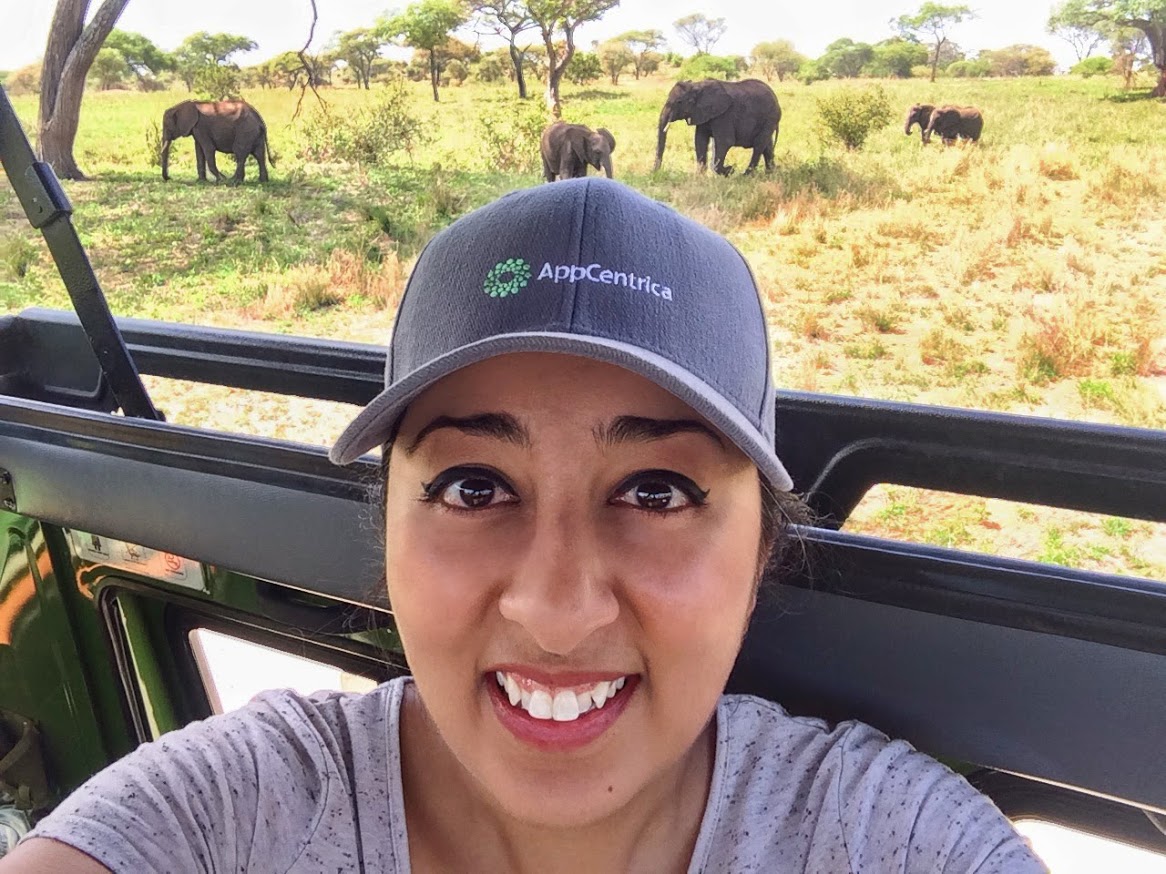
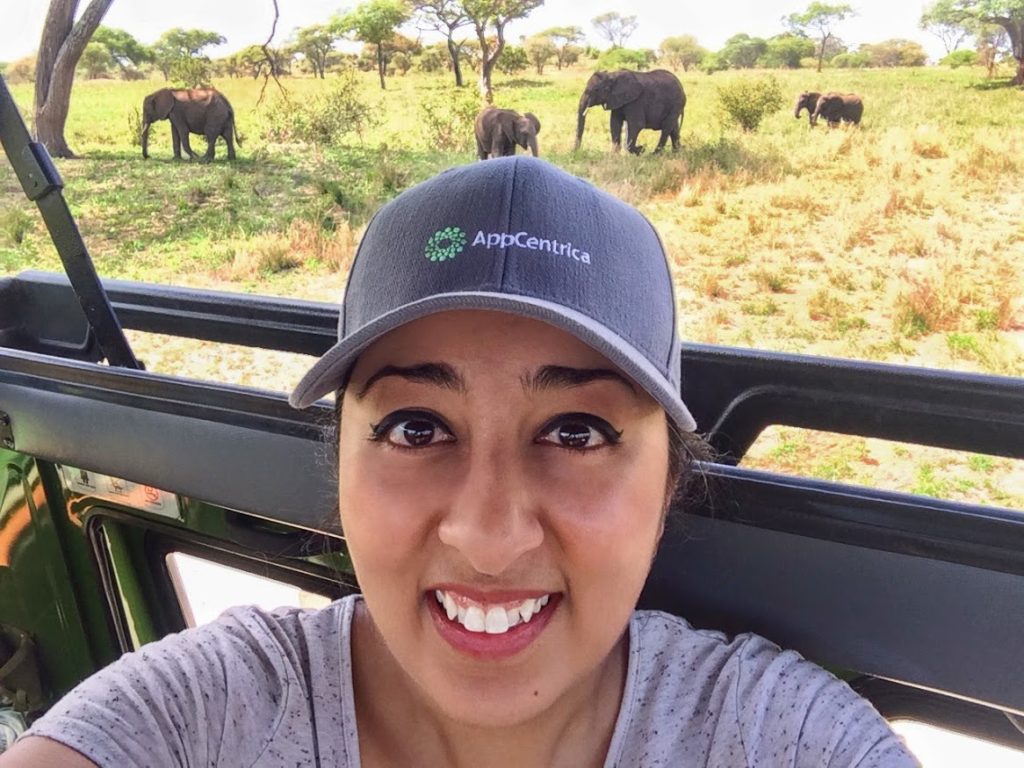
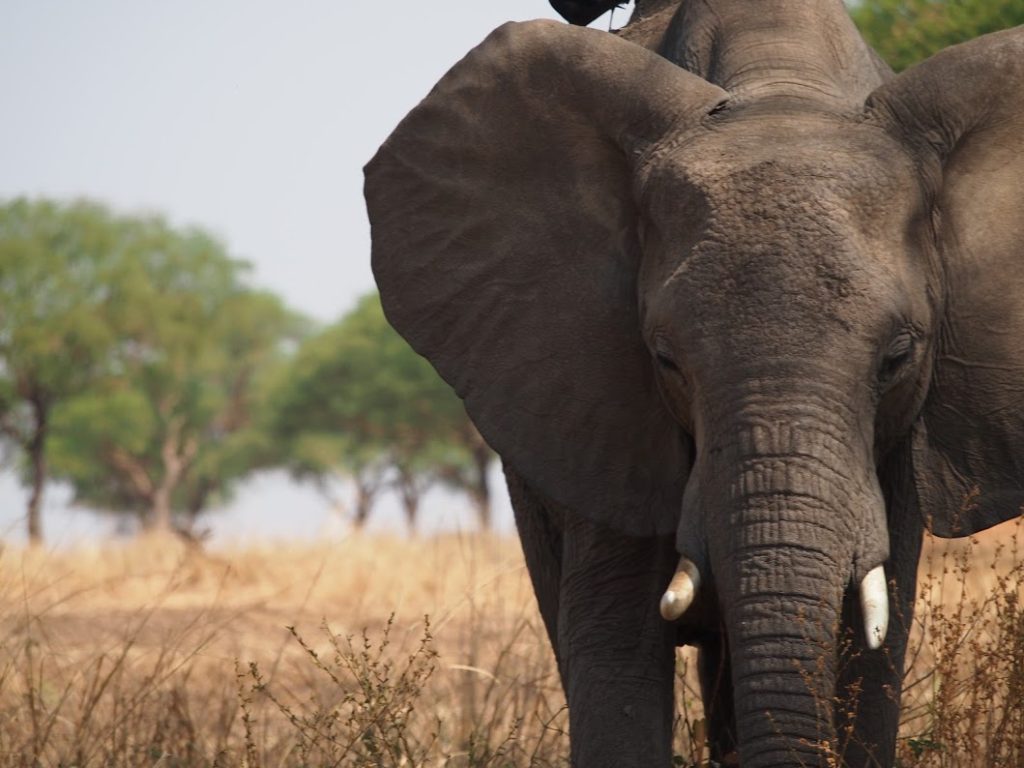
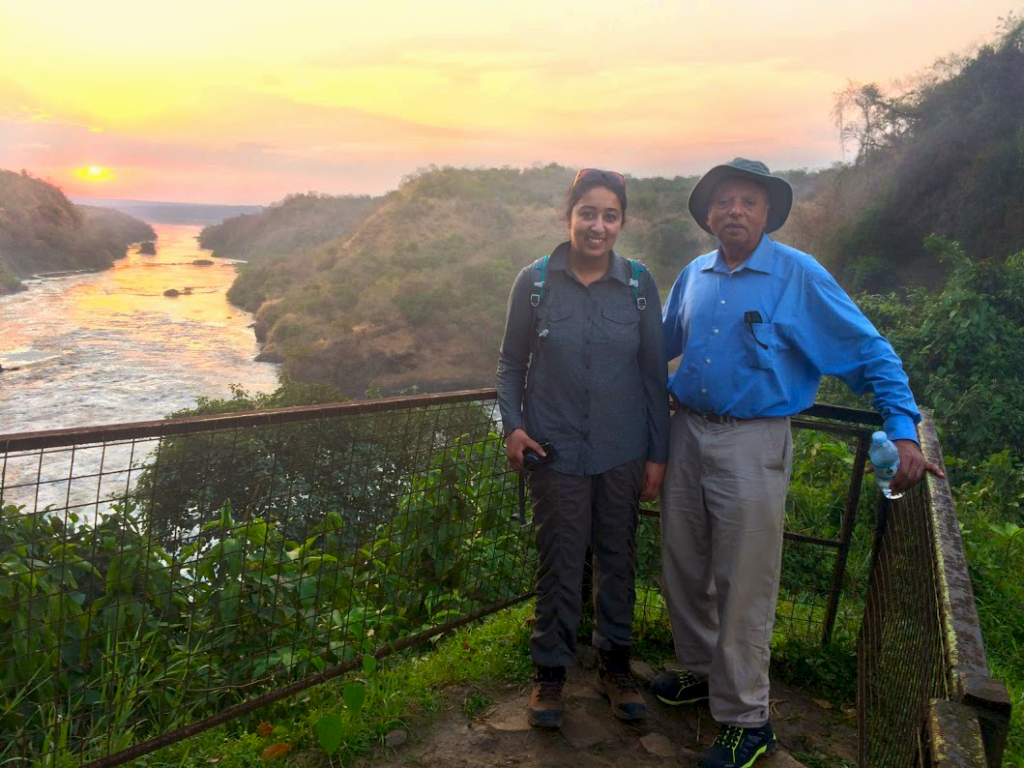
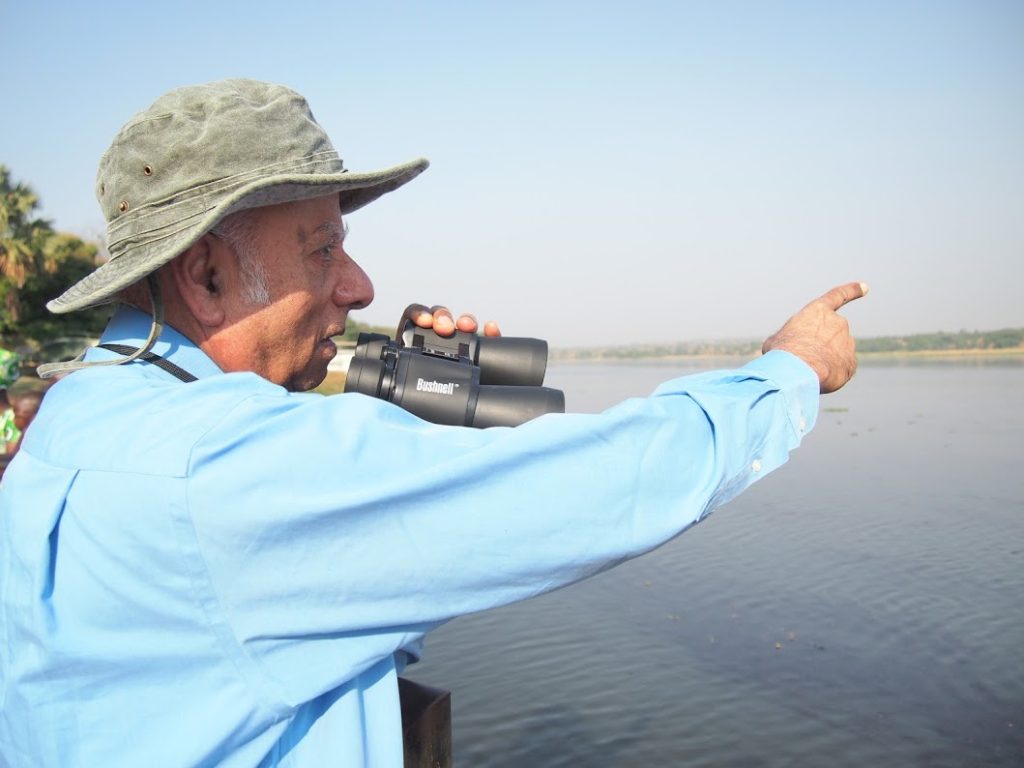
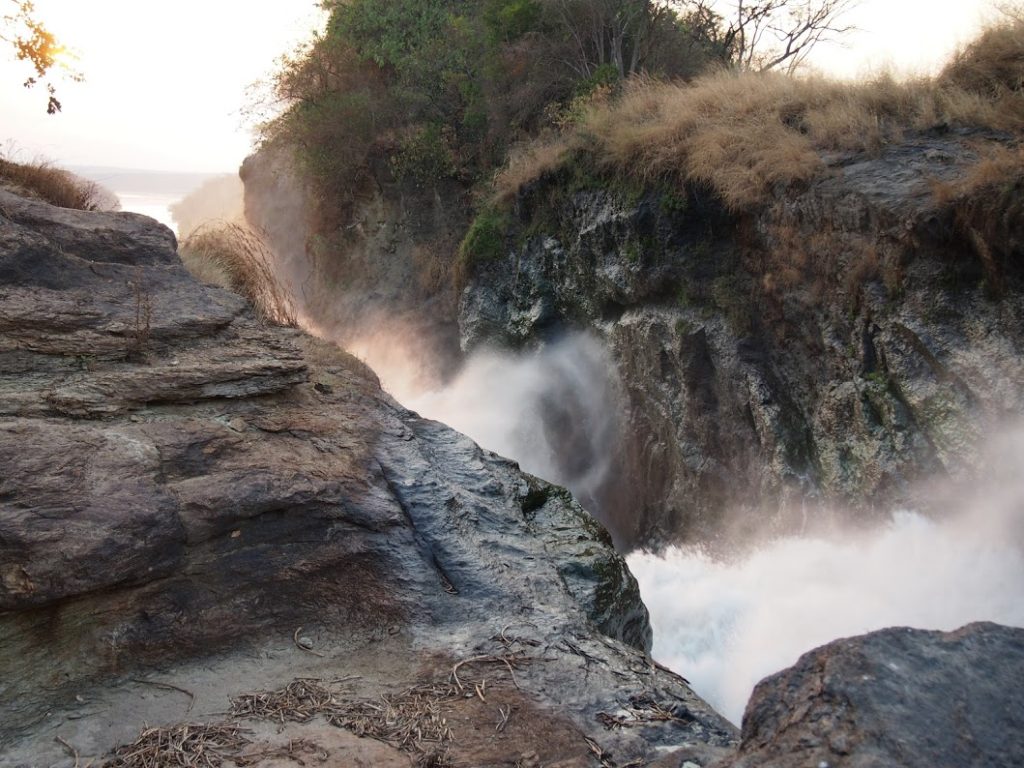
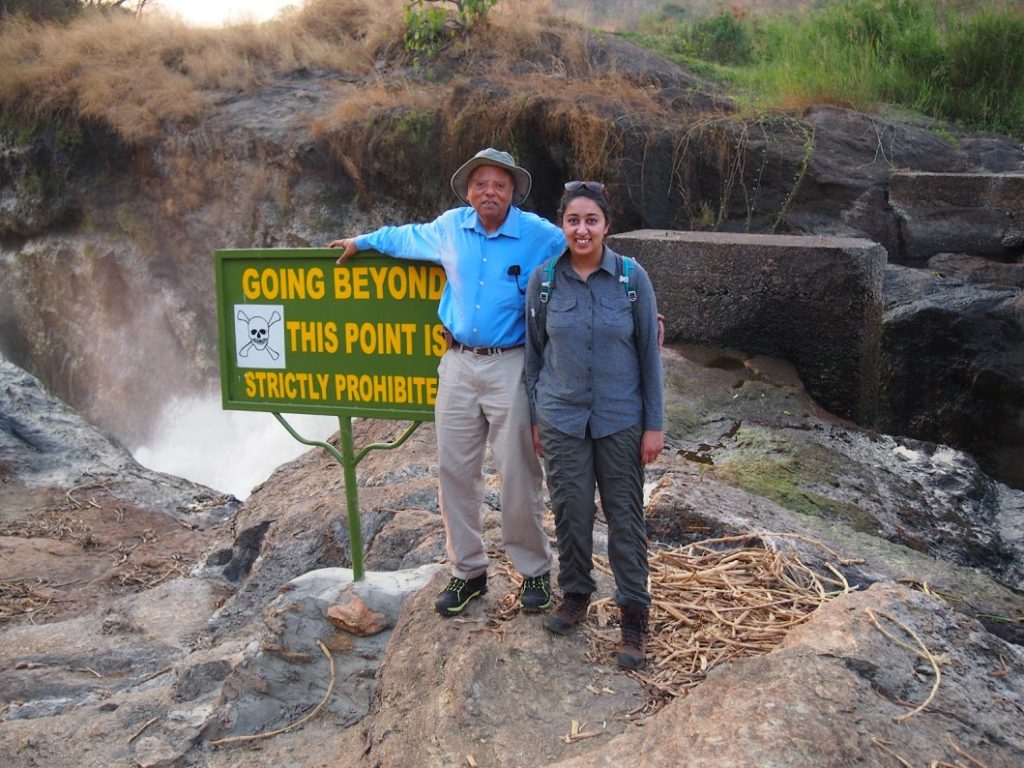
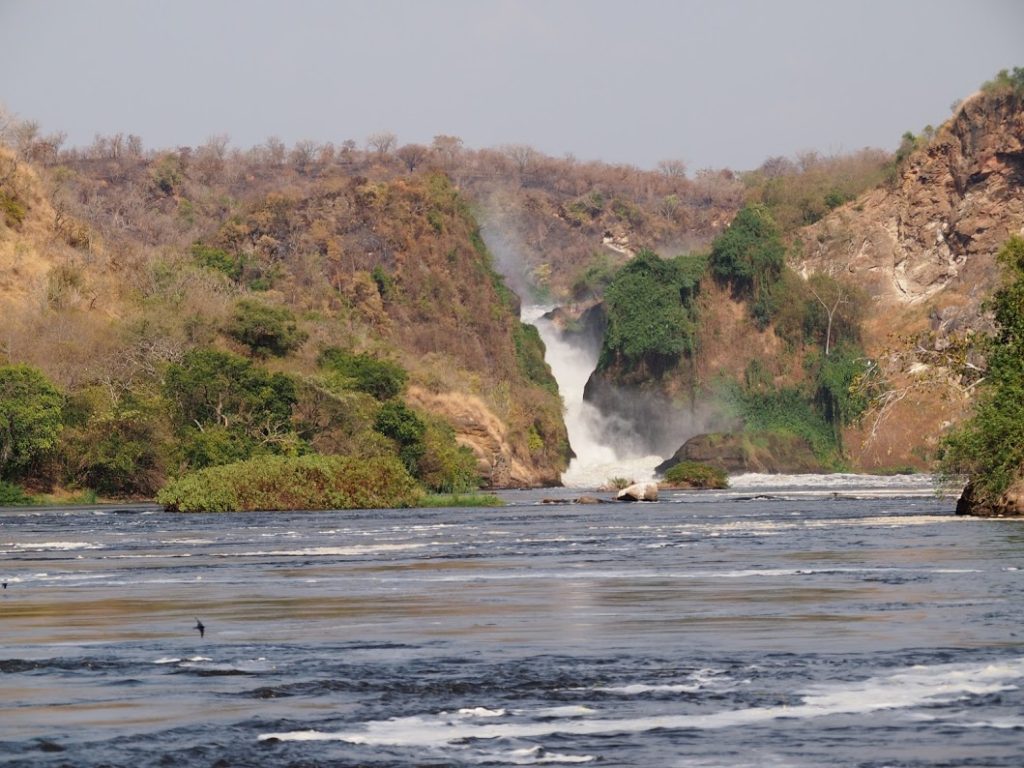
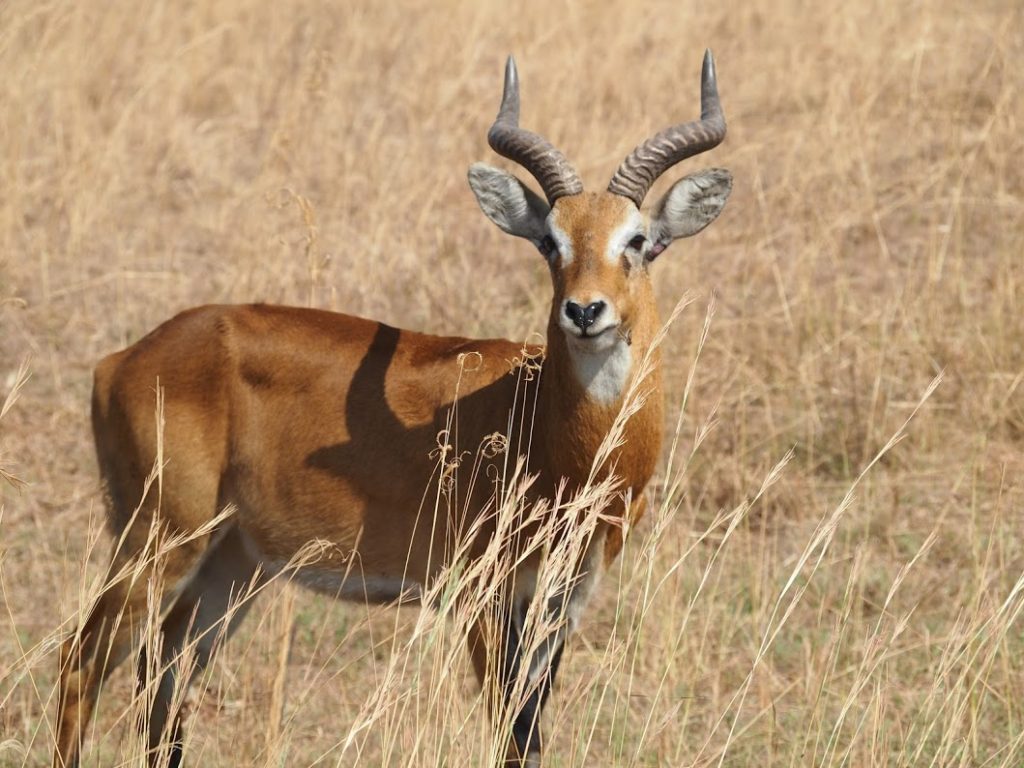
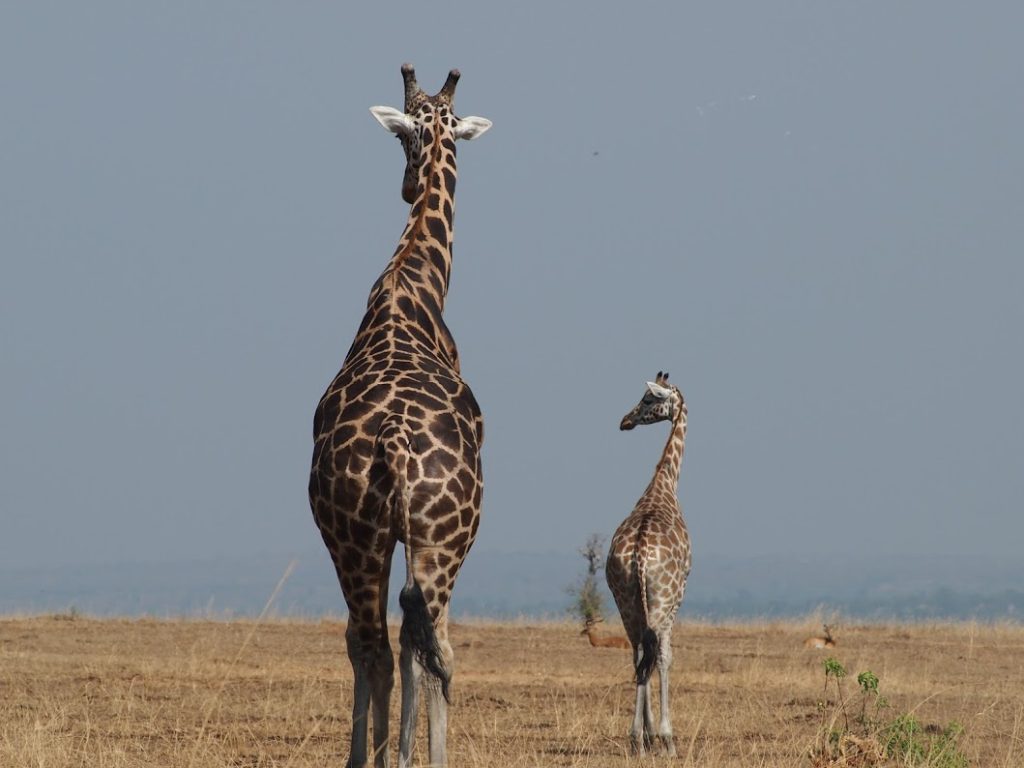
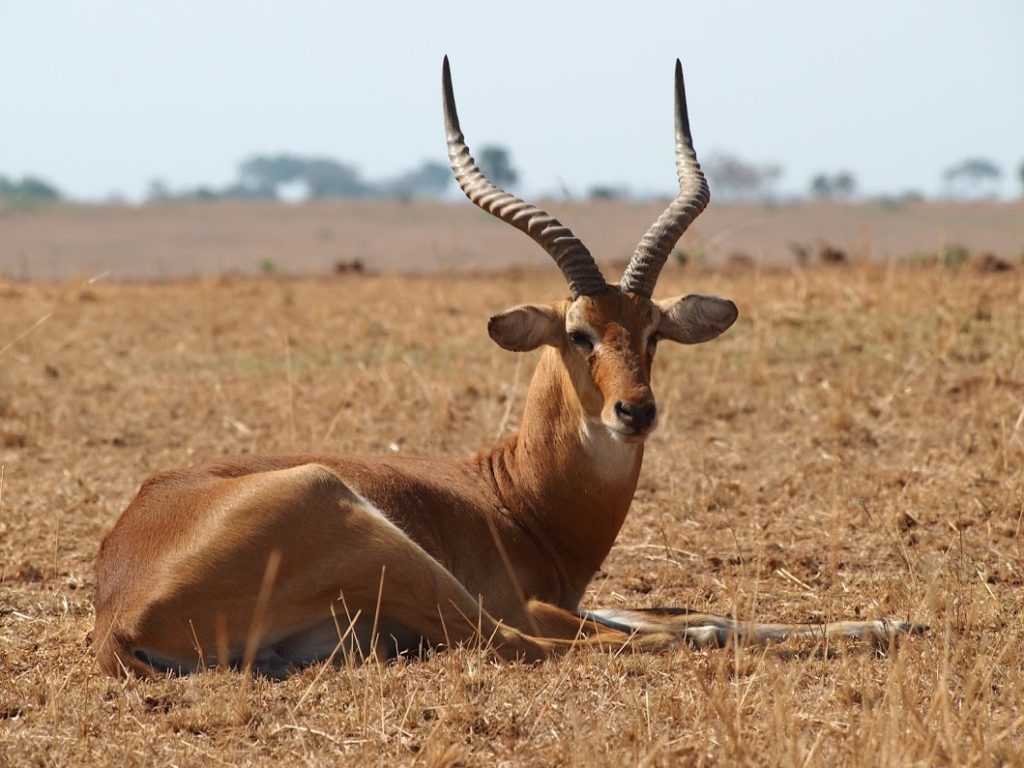
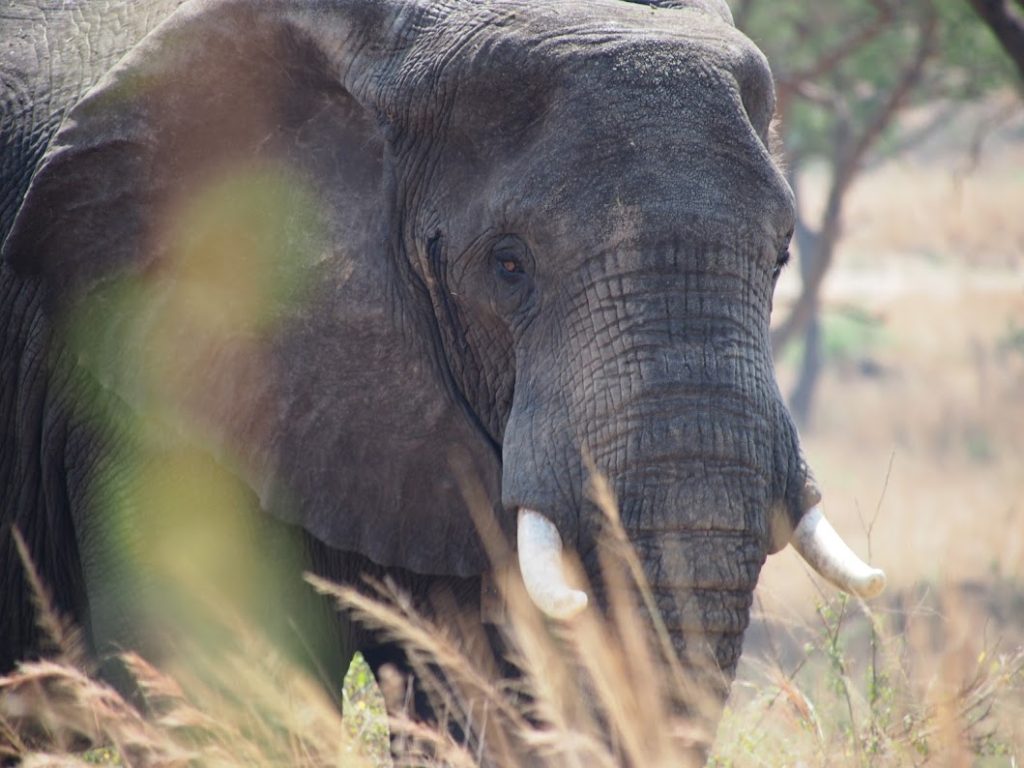
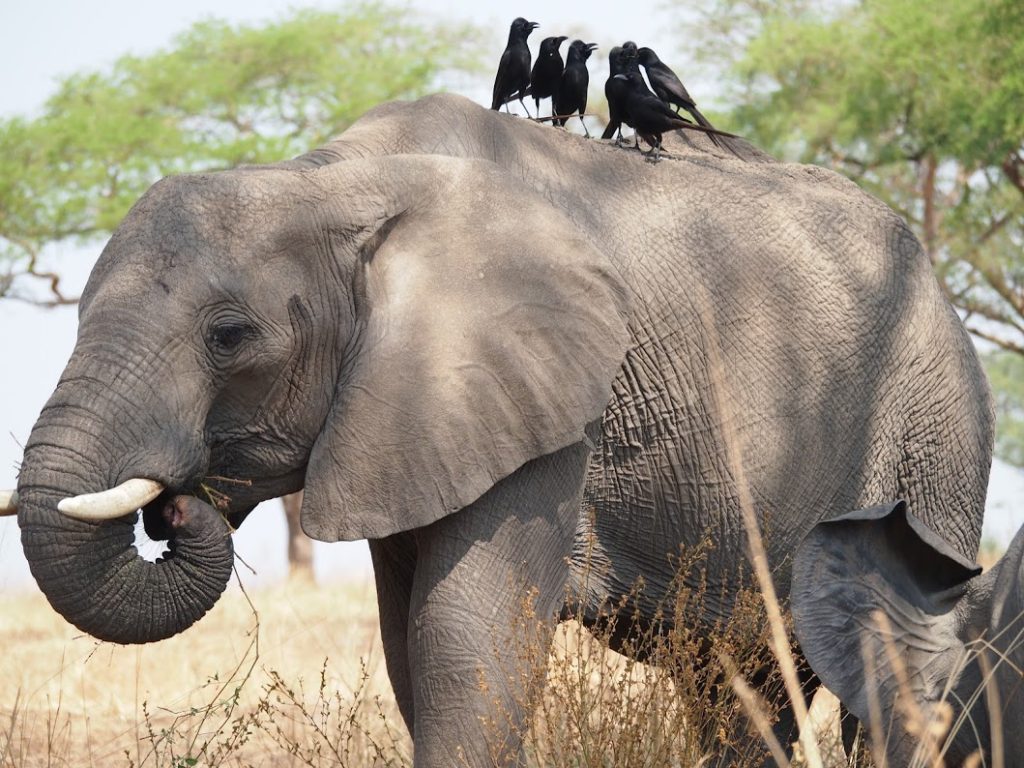
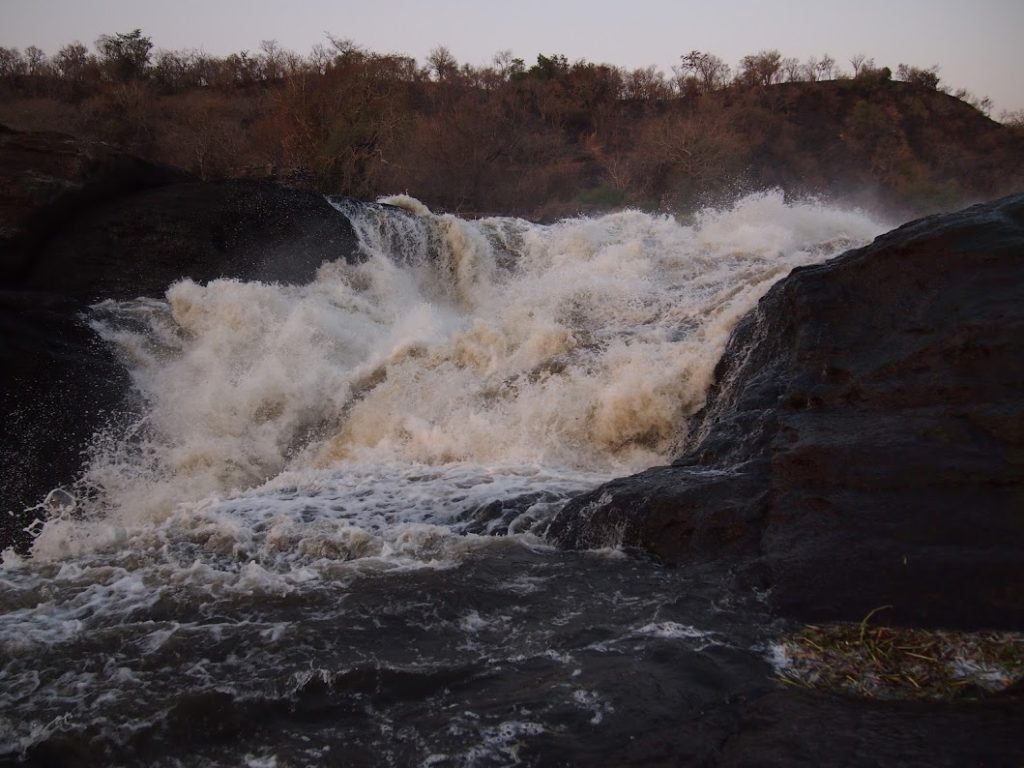
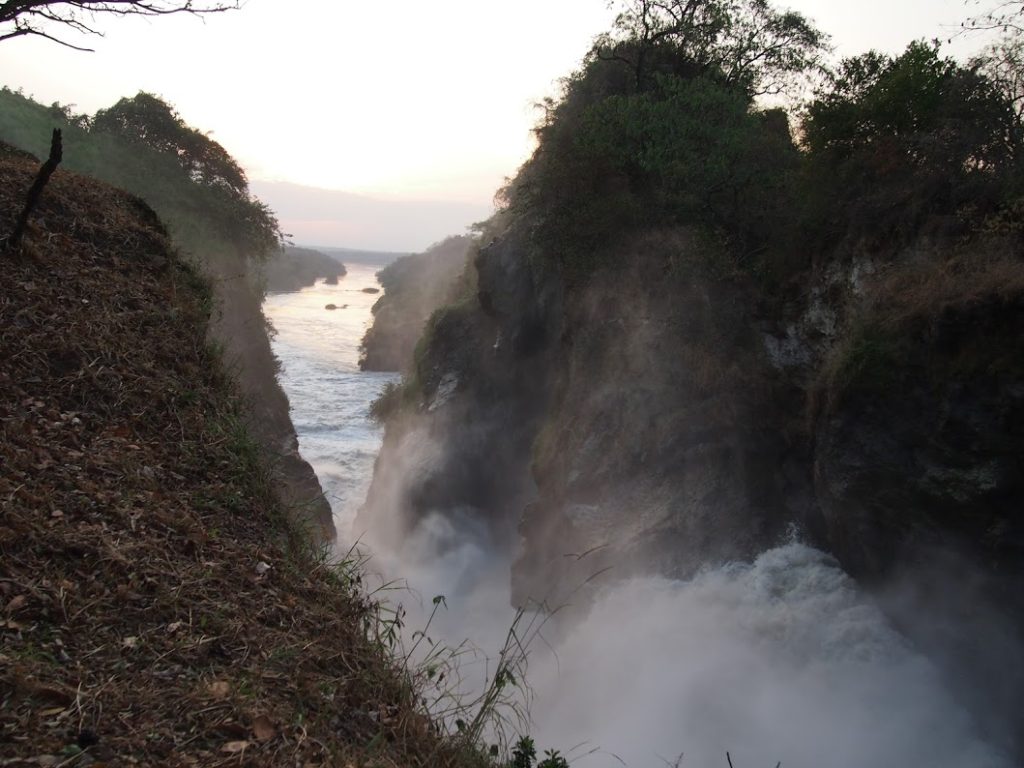
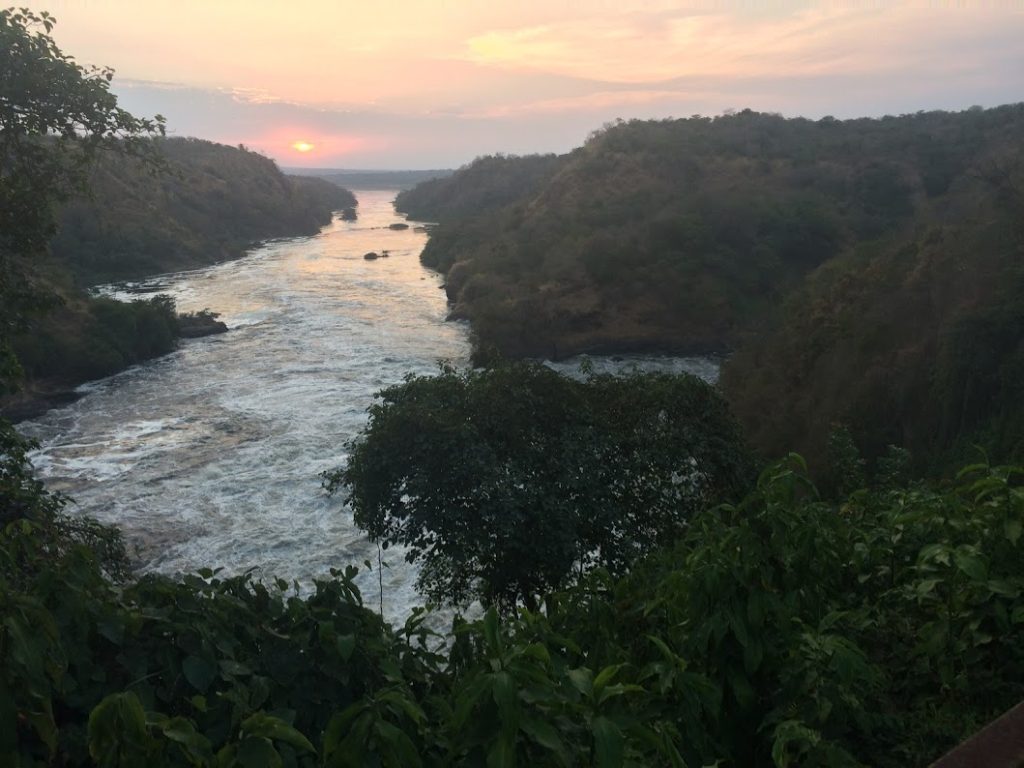
No comments.